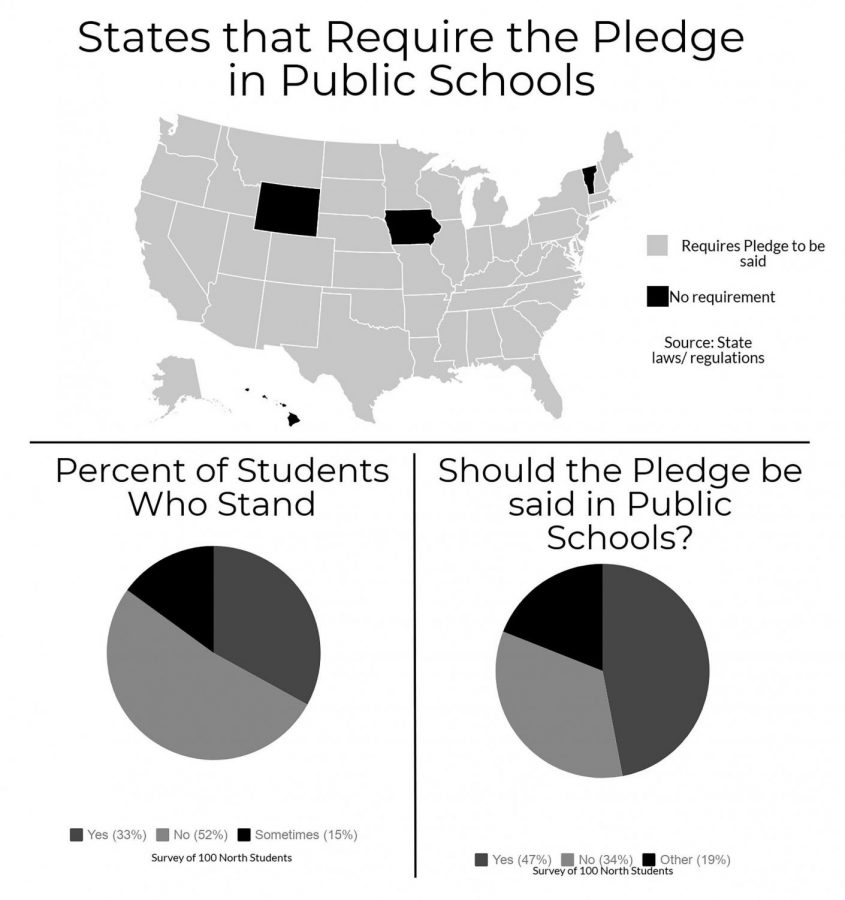Despite state regulation, North failed to say Pledge
October 24, 2018
From the first day of school to September 4, Omaha North High did not say the Pledge of Allegiance during the school day; a violation of state regulations on public schools.
In 2012, according to the Nebraska Council of School Administrators (NCSA), the Nebraska Board of Education passed an amendment to Rule 10, a regulatory bill on public education, requiring that all public schools dedicate a time during the day to say the pledge. A violation of Rule 10 can result in loss of accreditation and state funding.
However, the regulation does not require students to stand or recite the pledge, it simply requires the school to allot time to say it.
Michelle Franks, secretary at North High, assures that the only
reason North didn’t say the pledge the first two weeks of school was due to lack of communication with the Junior Reserve Officer’s Training Corp (JROTC), who coordinates the Pledge’s announcement.
Despite Rule 10, 36% of a survey of 100 North students believe that the pledge should be forbidden from public schools. 52% said they don’t stand up for it.
One student wrote, “The pledge is a lie in my opinion. America was stolen…We pledge ‘justice for all’ but are not honoring it.”
The school not saying the pledge means a lot more than just a lack of communication to other students.
Mia Kennedy, 11, feels like the pledge was turned into a “race issue.”
“All [African Americans] want is to be treated and seen the same,” Kennedy continued, “Everything said in the pledge doesn’t exactly pertain to [African Americans], yet it is something that we want and have yet to be given.”
However, most students, 47 percent, believe that the pledge should be said at public schools.
“Public schools are government organizations so, the pledge (should be said at them),” another student wrote in their survey response.
Julia Haas, 11, a staff sergeant in the JROTC program, feels like acknowledging the pledge is the “patriotic thing to do” and believes it should be said in public schools.
“Even though it’s a sign of respect to stand for the pledge,” Haas continued, “it’s an American’s right to kneel or sit during [the pledge]. That freedom is what
makes our country so great.”



